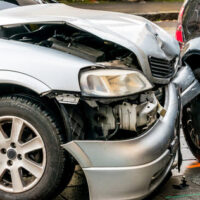Possibly Impaired Driver Kills Two Teenagers

18-year-old Erinasha Jones had a BAC level just below the legal limit and smelled of marijuana in the aftermath of a fatal collision on Interstate 275, according to investigators.
At the time of the wreck, Jones was northbound on I-275, approaching the Avenue N exit. She swerved from the inside lane to the exit lane, striking a 2008 Chevrolet Silverado in the process. She lost control of her vehicle, left the road, and crashed into a grove of trees. Jones and two teenagers in her car, 17-year-old Keeoshia Edwards and 16-year-old Jiana Minaya, were transported to a local hospital. The younger two victims did not survive.
During an interview, Jones said Edwards and Minaya were not wearing seatbelts. Investigators said that Jones’ clothes smelled like marijuana and that her BAC level was .067. The legal limit in Florida is .08.
Substance Impairment Crashes in Florida
Legally, these claims are always quite complex. Add additional elements, such as an underage driver and a marginal BAC level, and the result is a case that only a highly-experienced Tampa personal injury attorney should handle.
Frequently, alcohol-related crashes involve the negligence per se rule. Tortfeasors (negligent drivers) are responsible for damages as a matter of law if they violate a penal safety law, like the DUI law, and that violation causes injury. Recklessness, or lack thereof, is irrelevant.
Other times, as in the above case, the tortfeasor was impaired but not intoxicated. There’s a difference. Most people are intoxicated after they consume three or four drinks. But alcohol impairment begins with the first drink. In these cases, victim/plaintiffs can use circumstantial evidence to establish dangerous impairment. Such evidence includes things like:
- Erratic driving,
- Odor of alcohol,
- Traces of alcohol in one’s system, and
- Unsteady balance.
Individually, these items probably do not prove anything. But collectively, they usually add up to proof of consumption. That’s especially true since the burden of proof is so low in civil court.
Additionally, alcohol is not the only impairing substance out there. Illegal drugs, such as cocaine, and legal drugs, such as prescription painkillers, might have the same effect. In terms of intoxication and impairment, these substances work a little differently from alcohol.
Finally, the above wreck raises the possibility of third party liability. Jones obtained the alcohol and marijuana she allegedly ingested from somewhere. The person or entity that provided these substances might be vicariously liable for damages.
Florida’s dram shop law holds bard, restaurants, grocery stores, and other commercial providers liable for car crash damages if they sell alcohol to underage people who subsequently cause car crashes. The same thing could be true of the marijuana provider.
In both these situations, the victim/plaintiff must establish that the provider could foresee that a crash was possible. “Foreseeability” basically means “within the realm of possibility.”
The Seatbelt Defense
All states, except New Hampshire, have mandatory seatbelt laws. However, the laws in each state vary significantly as to whether seatbelt non-use is admissible in civil court.
Florida is one of the few states which recognize the so-called seatbelt defense. Insurance companies can use evidence of non-use to reduce the amount of compensation the victim receives.
That’s assuming the insurance company proves the victim wasn’t wearing a seatbelt and that non-use contributed to the victim’s injuries. As for non-use, most jurors would need more than the tortfeasor’s statement. As for contribution to injuries, a doctor must convince jurors that the failure to wear a seatbelt, and not the tortfeasor’s negligent driving, caused the injuries.
Florida is a pure comparative fault state. So, even if the failure to wear a seatbelt was responsible for 99 percent of the injuries, the victim is still entitled to a proportionate share of damages.
These damages usually include compensation for economic losses, such as medical bills, and noneconomic losses, such as pain and suffering.
Contact Dedicated Lawyers
Impaired drivers often cause serious injuries. For a free consultation with an experienced Tampa car accident attorney, contact The Matassini Law Firm. We do not charge upfront legal fees in injury cases.
